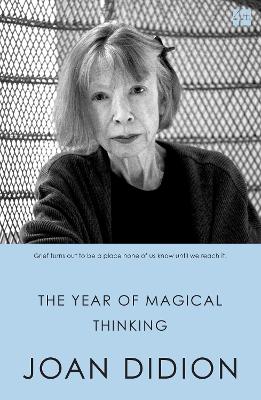Reviewed by gmcgregor on
But she can't just focus dealing with the loss of her constant companion for decades (as professional writers, they both worked from home). Her daughter is still comatose, and Joan has to break the news to her not once but twice (she forgets when she falls back into a coma after being told the first time). Quintana does seem to recover, the funeral happens, and she flies back to California with her own husband...only to collapse again on her way out of the airport. Joan leaves her NYC apartment to head to LA to be there for her daughter, and is constantly buffeted by memories of her family's early, happy years in the area. Eventually Quintana recovers again, and Joan returns home, wrapping up her book a year and a day after her husband's death.
On the surface, there's very little in Joan Didion's life that I can relate to: she and her husband lived at a level of financial security where they made regular trips to Paris (their quibbling over what turned out to be their last trip, taken at John's insistence because he had a vague feeling that it might be his last chance is something Joan relates), they lived in LA for a time to write screenplays, they take daily walks in Central Park. And like I've said, I've never lived through the kind of awful experiences she recounts in this book. But she's an extremely talented writer, so her words spoke to me and tugged at my heart. She doesn't just tell you that grief takes you around in circles, she has motifs in her writing that pop up over and over again, taking you on that journey with her. You feel her agony when she thinks she's plotted her route around LA when she's there with Quintana to avoid anything that would remind her of when her husband was alive but she finds that she didn't plan carefully enough and the fragile scar tissue she's built up is battered by waves of memory.
It feels odd to say that I "enjoyed" reading a memoir about profound grief. But I found it incredibly compelling and difficult to put down even though it was hard to read. She really takes the reader on a journey with her. Knowing that even though she was alive at the end of the book, Quintana died shortly thereafter, made its impact even greater. I'd never read any of Didion's work before, but I picked up one of her novels and two of her essay collections after reading this book, because I wanted to read more of her writing. I'd recommend this book to anyone that feels like picking it up.
Reading updates
- Started reading
- 31 August, 2017: Finished reading
- 31 August, 2017: Reviewed
